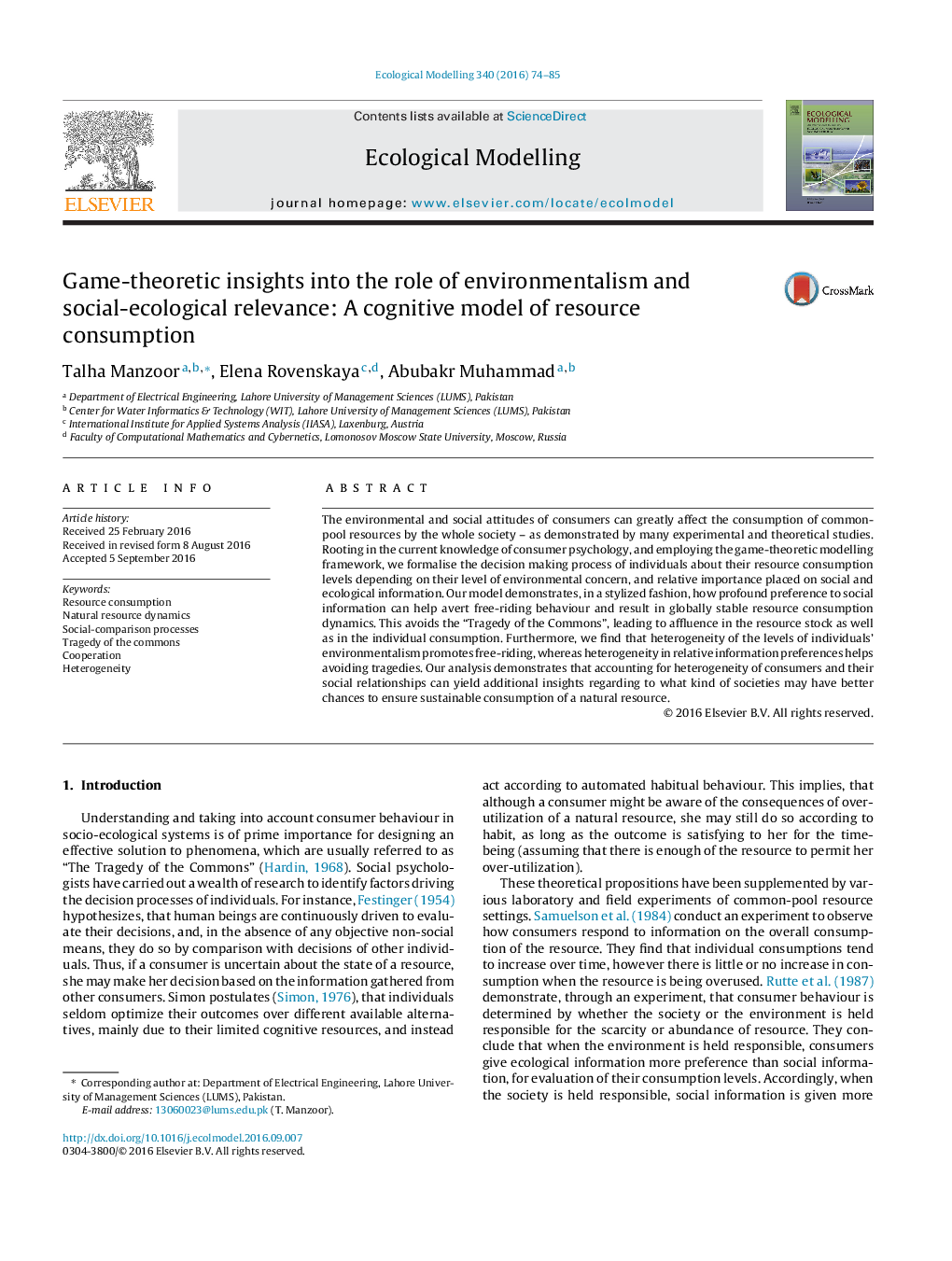| Article ID | Journal | Published Year | Pages | File Type |
|---|---|---|---|---|
| 6295975 | Ecological Modelling | 2016 | 12 Pages |
Abstract
The environmental and social attitudes of consumers can greatly affect the consumption of common-pool resources by the whole society - as demonstrated by many experimental and theoretical studies. Rooting in the current knowledge of consumer psychology, and employing the game-theoretic modelling framework, we formalise the decision making process of individuals about their resource consumption levels depending on their level of environmental concern, and relative importance placed on social and ecological information. Our model demonstrates, in a stylized fashion, how profound preference to social information can help avert free-riding behaviour and result in globally stable resource consumption dynamics. This avoids the “Tragedy of the Commons”, leading to affluence in the resource stock as well as in the individual consumption. Furthermore, we find that heterogeneity of the levels of individuals' environmentalism promotes free-riding, whereas heterogeneity in relative information preferences helps avoiding tragedies. Our analysis demonstrates that accounting for heterogeneity of consumers and their social relationships can yield additional insights regarding to what kind of societies may have better chances to ensure sustainable consumption of a natural resource.
Related Topics
Life Sciences
Agricultural and Biological Sciences
Ecology, Evolution, Behavior and Systematics
Authors
Talha Manzoor, Elena Rovenskaya, Abubakr Muhammad,
